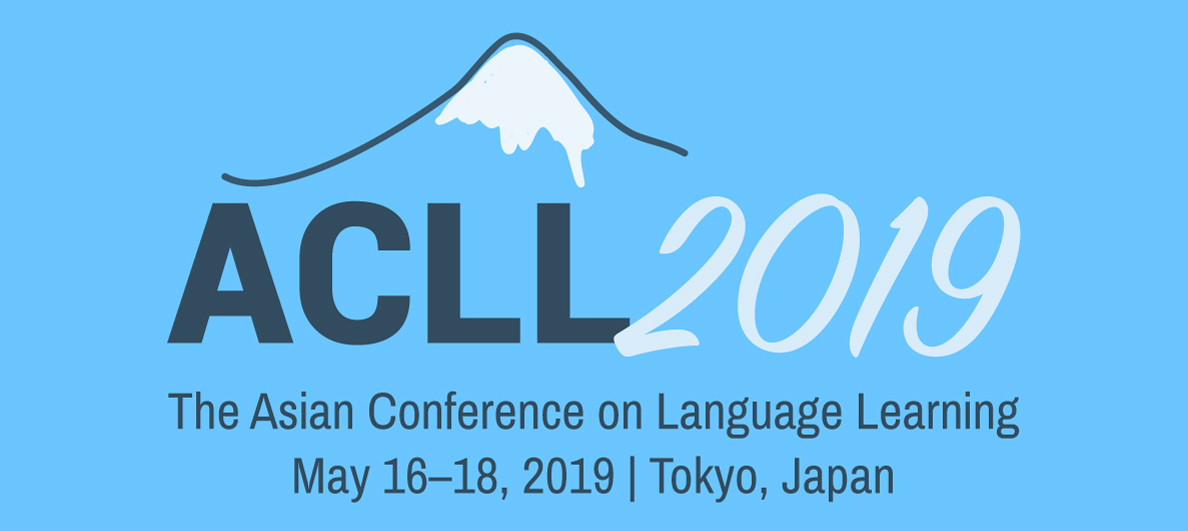Conference Theme: “Education, Power and Empowerment: Transcending Boundaries”
April 28 – May 1, 2015 | Art Center of Kobe, Kobe, Japan
Letter of Welcome
 “Integrated Practices: Creating Experiences to Enhance Learning” is the theme of our conference this year. How can we as educators and educational technologists create experiences worth integrating into our learners’ educations and lives? How can we teach students to make sense of experience and connect it with instruction and inquiry in the classroom and online? Vibrant, challenging, enjoyable, and difficult experiences are all at the heart of learning. By bringing together over 300 thoughtful educators from around the world, we will create an international, interdisciplinary, and intercultural experience that will become part of your professional and personal life, and that you can carry back and share with colleagues at your home institutions. This conference should not end when you board a train or aircraft home, but should reverberate through our teaching and research for months or years to come. That has certainly been our experience of previous Asian Conferences on Language Learning and Technology in the Classroom, and we hope it will be yours.
“Integrated Practices: Creating Experiences to Enhance Learning” is the theme of our conference this year. How can we as educators and educational technologists create experiences worth integrating into our learners’ educations and lives? How can we teach students to make sense of experience and connect it with instruction and inquiry in the classroom and online? Vibrant, challenging, enjoyable, and difficult experiences are all at the heart of learning. By bringing together over 300 thoughtful educators from around the world, we will create an international, interdisciplinary, and intercultural experience that will become part of your professional and personal life, and that you can carry back and share with colleagues at your home institutions. This conference should not end when you board a train or aircraft home, but should reverberate through our teaching and research for months or years to come. That has certainly been our experience of previous Asian Conferences on Language Learning and Technology in the Classroom, and we hope it will be yours.
Speakers
Kay Irie
Gakushuin University, Japan
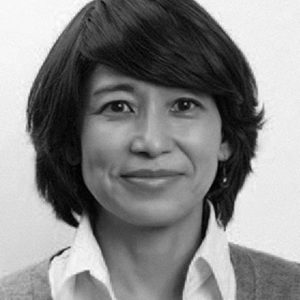 Kay Irie is a Professor at Gakushuin University, Tokyo where she is developing a CLIL-based English program for the new Faculty of International Studies starting in April 2016. She also teaches in the Graduate College of Education at Temple University Japan. Her current research interests include learner autonomy, second language learning motivation in tertiary education related to the concept of L2 self, and research methods used in these areas. Her recent publications include Study Abroad and the Dynamics of Change in Learner L2 Self-Concept (co-author: Stephen Ryan) in Motivational Dynamics in Language Learning (edited by Dörnyei, MacIntyre, & Henry, 2015, Multilingual Matters), Q methodology for post-social-turn research in SLA (SSLLT, 4, 2014), Investing in experiential capital: Self-efficacy, imagination and development of ideal L2 selves (co-author: Damon Brewster) in The Impact of Self-Concept on Language Learning (edited by Csizér & Magid, Multilingual Matters).
Kay Irie is a Professor at Gakushuin University, Tokyo where she is developing a CLIL-based English program for the new Faculty of International Studies starting in April 2016. She also teaches in the Graduate College of Education at Temple University Japan. Her current research interests include learner autonomy, second language learning motivation in tertiary education related to the concept of L2 self, and research methods used in these areas. Her recent publications include Study Abroad and the Dynamics of Change in Learner L2 Self-Concept (co-author: Stephen Ryan) in Motivational Dynamics in Language Learning (edited by Dörnyei, MacIntyre, & Henry, 2015, Multilingual Matters), Q methodology for post-social-turn research in SLA (SSLLT, 4, 2014), Investing in experiential capital: Self-efficacy, imagination and development of ideal L2 selves (co-author: Damon Brewster) in The Impact of Self-Concept on Language Learning (edited by Csizér & Magid, Multilingual Matters).
Keynote Presentation: “Integrating Language Learning as Part of a Self Narrative”
Second language (L2) learning takes time and effort. Successful learners are those who can keep working at it for a substantial period of time while they have so many other things to deal with in their lives. Over the last five years, with my colleague, I have been interviewing a group of Japanese university students we met in their first year and following their language learning trajectory: How they engaged in learning and maintained (or failed to maintain) their effort.
The focus of the study was on the development of their ideal L2 self, the images of themselves as successful language learners and users that guide their behavior towards mastery of the language. Tracking the development and change of each learner’s ideal L2 self over the years revealed how the resilient learners integrated language learning as part of their self-narrative – the stories that they tell themselves about themselves.
In this talk, I would like to share the stories of these learners that achieved varying degrees of success and how they processed their experiences, used imagination, and adjusted their future self-imagery of themselves as users of the target language.
Tony Tin
University of Waterloo, Canada
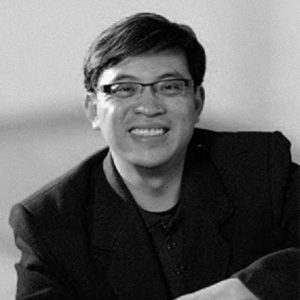 Tony Tin is the Director of Library and Information Services at University of Waterloo’s Renison University College Library. Tony had coordinated many mobile learning projects which won the International E-Learning Association’s E-learning Award 2012. His Mobile Library project received the Canadian Library Association Library Research and Develop Grant Award in 2006. His Mobile ESL project received an honourable mention for Excellence and Innovation in Use of Learning Technology from the Canadian Network for Innovation in Education in 2008. He attained his Master of Library and Information Sciences from University of Alberta, Master of Arts and Bachelor of Arts from McGill University and Bachelor of Education from University of Alberta. He is currently completing his Doctor of Distance Education degree from Athabasca University. He has published articles and book chapters and presented at conferences on topics such as library technology, digital libraries, and mobile libraries.
Tony Tin is the Director of Library and Information Services at University of Waterloo’s Renison University College Library. Tony had coordinated many mobile learning projects which won the International E-Learning Association’s E-learning Award 2012. His Mobile Library project received the Canadian Library Association Library Research and Develop Grant Award in 2006. His Mobile ESL project received an honourable mention for Excellence and Innovation in Use of Learning Technology from the Canadian Network for Innovation in Education in 2008. He attained his Master of Library and Information Sciences from University of Alberta, Master of Arts and Bachelor of Arts from McGill University and Bachelor of Education from University of Alberta. He is currently completing his Doctor of Distance Education degree from Athabasca University. He has published articles and book chapters and presented at conferences on topics such as library technology, digital libraries, and mobile libraries.
Featured Presentation: “Using Mobile Technology in Information Literacy Skills Training to Enhance Students Learning Experience”
Learning essential information literacy skills through the use of mobile phones is an innovative mLearning pilot project that has been launched with undergraduate students. Thirteen mobile information literacy mLearning lessons have been developed (http://beam.to/renmil), designed to demonstrate how to locate, evaluate, and use information effectively. The Mobile Information Literacy Tool lessons include step-by-step videos, practical tips, links to online resources, and interactive exercises to assist student in writing assignments and research papers. Students are encouraged to use their smartphone and mobile devices to learn during short breaks or while riding a bus. An eight month research project is being conducted with undergraduate students in five different classes majoring in psychology, social work, education or social development studies to determine the effectiveness of using mobile technology to enhance students’ information literacy skills and learning experience. The research study includes pre and post-test measures and a questionnaire that will generate quantitative and qualitative data. Data analysis will indicate the degree of change in frequency of mobile device information literacy access and fluency in digital literacy skills . Our research hypothesis is that digital literacy skills will increase with the use of the mobile technology information literacy eLearning project.
The presentation highlights the mobile information literacy innovation, a collaborative effort between faculty and the Library, and includes the development and design of the mobile lessons, interactive exercises, and its applications. We will discuss the success and challenges of the research project to support anytime, anywhere mobile training to enhance students’ learning experience.
David Passig
Bar-Ilan University, Israel
 David Passig is a futurist, lecturer, consultant and best-selling author who specializes in technological, social and educational futures. Professor Passig is an Associate Professor at Bar-Ilan University (BIU), Ramat-Gan, Israel, where he teaches at the Graduate School of Education. His courses include: Systems Theories, Future Methodologies, and Technological, Social and Educational Futures. He heads BIU’s Graduate Program in Communication Technologies as well as BIU’s Virtual Reality Laboratory.
David Passig is a futurist, lecturer, consultant and best-selling author who specializes in technological, social and educational futures. Professor Passig is an Associate Professor at Bar-Ilan University (BIU), Ramat-Gan, Israel, where he teaches at the Graduate School of Education. His courses include: Systems Theories, Future Methodologies, and Technological, Social and Educational Futures. He heads BIU’s Graduate Program in Communication Technologies as well as BIU’s Virtual Reality Laboratory.
Professor Passig has consulted for many corporations as well as public and private sector institutes. He is the chair of FutureCode Ltd., which develops and employs tool kits of computerized Futures methods in decision making processes. He has consulted in Israel, Asia, Europe and North America. He has served as the chief advisor to the Commissioner for Future Generations in the Israeli Knesset. Among his many activities, he is a member of the Israeli National Council for R&D.
Professor Passig’s bestseller books are The Future Code and 2048. Each has received Israel’s coveted Gold Book Award. His most recent book, Forcognito – The Future Mind, was published in January 2013 and was at the top of the Israeli best seller list.
Professor Passig holds a PhD in Future Studies from the University of Minnesota, Twin Cities.
Featured Presentation: “Revisiting the Flynn Effect through 3D Immersive Virtual Reality (IVR)”
The Flynn Effect, which identified the overwhelming improvement in IQ scores that took place during the second half of the 20th century, has now become known to all. After many attempts to explain the phenomenon, it is now widely accepted that nurture plays a major role in accelerating humanity’s cognitive skills. This paper attempts to revisit these explanations by reflecting on a decade long of studies conducted in one Virtual Reality Laboratory aimed at better understanding the correlation between technology – more specifically, 3D Immersive Virtual Reality (3D IVR) – and the accelerated improvement in a variety of cognitive skills. These studies tested a few aspects of Flynn’s social and cultural explanations. We examined, first, whether it is possible to generate an even greater acceleration in the enhancement of various abstract thinking skills. We asked whether it is possible to improve skills even among populations with congenital cognitive disabilities, and what is the most efficient way to accelerate the improvement. And most importantly – we examined whether it is possible to improve concrete thinking skills as well, which Flynn found not to have improved. The results of these studies cast solid doubt on Flynn’s explanations, suggesting that advanced educational technologies, with their advanced interfaces, indeed generate an accelerated enhancement in a wide range of skills that the natural environment alone cannot account for.
Michael Griffin
Chung-Ang University, South Korea
 Michael Griffin has been involved with English teaching for nearly 15 years and has worked as a teacher, teacher trainer, trainer trainer, curriculum developer, substitute teacher, assistant director, and mentor. He teaches in the Graduate School of International Studies at Chung Ang University teaching both future translators/interpreters and graduate students in International Studies. He also teaches Curriculum Development on the New School MATESOL program. His interests include professional development, reflective practice, ELF, and curriculum development.
Michael Griffin has been involved with English teaching for nearly 15 years and has worked as a teacher, teacher trainer, trainer trainer, curriculum developer, substitute teacher, assistant director, and mentor. He teaches in the Graduate School of International Studies at Chung Ang University teaching both future translators/interpreters and graduate students in International Studies. He also teaches Curriculum Development on the New School MATESOL program. His interests include professional development, reflective practice, ELF, and curriculum development.
Featured Presentation: “How we talk about English Teaching (in South Korea)”
In this session the presenter will share a look into how foreign English teachers discuss their teaching lives, teaching practices and cultural encounters. Typical modes of communication including on and offline spaces will be examined and highlighted.
Common topics and concerns of foreign English teachers will be explored as well. Additionally, we will consider how teachers discuss their students, subjects, colleagues, workplaces and work. Particular attention will be paid to notions of teacher identity and cultural identities. The questions of how and if these discussions enhance teacher or student learning will be central. Based in South Korea, the presenter will use the foreign English teachers in the Korean EFL context as a starting point for considering how English teachers tend to discuss their craft. A potential takeaway for attendees is a fresh perspective on the types of conversations they tend to have about teaching, regardless of their context, and the potential impacts of these on their own teaching.
Kristen Sullivan
Shimonoseki City University, Japan
 Kristen Sullivan is a professor at Shimonoseki City University, Japan, where she has been teaching since 2005. She recently co-edited the SiSAL Journal Special Issue on Self-Regulation in Foreign Language Learning with Paul Collett, and she is co-author of the oral communication textbooks Impact Conversation 1 & 2 (Pearson Longman Asia ELT). She is interested in the teaching, learning and assessment of speaking and writing, as well as interactions between language learner identity and language use. Her current research looks at intersections between learning-oriented assessment and self-regulated learning, and how these concepts can be used to promote learner development and educational equity. Much of Kristen’s research and practice is informed by her experiences as a learner of Japanese. She is actively engaged in her own lifelong language learning, and recently become an accredited NAATI professional translator from Japanese into English.
Kristen Sullivan is a professor at Shimonoseki City University, Japan, where she has been teaching since 2005. She recently co-edited the SiSAL Journal Special Issue on Self-Regulation in Foreign Language Learning with Paul Collett, and she is co-author of the oral communication textbooks Impact Conversation 1 & 2 (Pearson Longman Asia ELT). She is interested in the teaching, learning and assessment of speaking and writing, as well as interactions between language learner identity and language use. Her current research looks at intersections between learning-oriented assessment and self-regulated learning, and how these concepts can be used to promote learner development and educational equity. Much of Kristen’s research and practice is informed by her experiences as a learner of Japanese. She is actively engaged in her own lifelong language learning, and recently become an accredited NAATI professional translator from Japanese into English.
Paul Collett
Shimonoseki City University, Japan
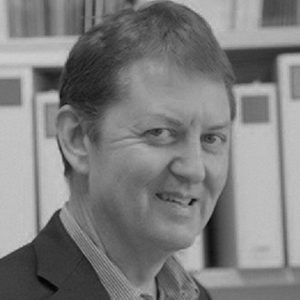 Paul Collett is an instructor at Shimonoseki City University. In his 25 years in Japan, he has worked with English language learners across multiple age groups and levels of ability. His interests include learner beliefs, situated cognition, student and teacher motivation, and epistemology and methodology in research. Currently, he is looking at how to help language learners develop the kinds of mindsets and goal orientations that can contribute to increased self-regulation and autonomy. He has published in a number of publications, and recently co-edited (with colleague Kristen Sullivan) the SiSAL Journal Special Issue on Self-Regulation in Foreign Language Learning. He has presented at numerous conferences throughout the Asia-Pacific region.
Paul Collett is an instructor at Shimonoseki City University. In his 25 years in Japan, he has worked with English language learners across multiple age groups and levels of ability. His interests include learner beliefs, situated cognition, student and teacher motivation, and epistemology and methodology in research. Currently, he is looking at how to help language learners develop the kinds of mindsets and goal orientations that can contribute to increased self-regulation and autonomy. He has published in a number of publications, and recently co-edited (with colleague Kristen Sullivan) the SiSAL Journal Special Issue on Self-Regulation in Foreign Language Learning. He has presented at numerous conferences throughout the Asia-Pacific region.
Featured Co-Presentation: “Three things we can do to help all of our learners succeed”
As language teachers we spend a lot of time considering what teaching approaches or methodologies to employ, and what materials and activities to use to best contribute to our learners’ language development. While it is natural for us to prioritize pedagogical issues directly related to our field, we need to realize that so much related to our learners’ success is connected with the development of more general academic learning skills and strategies, and how we as teachers work to support this. In this talk, the presenters will draw from discussions in the larger field of education to suggest three things all teachers can be doing in their classrooms to help all of their learners to succeed: fostering self-regulated learning skills and strategies, incorporating learning-oriented assessment practices, and believing in the potential of all learners.
Eric Hawkinson
Seibi University, Japan
 Born in Wisconsin and raised in the deserts of Arizona. Having a professional background in IT Eric Hawkinson is taking everything ‘techie’ and turning it towards educating students. He now works and lives in northern Kyoto prefecture, Japan currently focusing on games based learning, electronic informal learning environments and eTourism. For the last few years Eric has been innovating ways to apply augmented reality to a variety of fields including tourism and education.
Born in Wisconsin and raised in the deserts of Arizona. Having a professional background in IT Eric Hawkinson is taking everything ‘techie’ and turning it towards educating students. He now works and lives in northern Kyoto prefecture, Japan currently focusing on games based learning, electronic informal learning environments and eTourism. For the last few years Eric has been innovating ways to apply augmented reality to a variety of fields including tourism and education.
Erin Noxon
Sagano High School, Japan
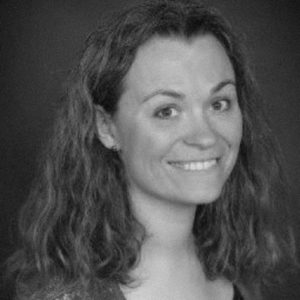 Erin Noxon currently teaches at Sagano High School in Kyoto, Japan. She is also a Doctoral candidate at the University of Florida, earning her degree in Educational Technology. She has a Masters in Secondary Science Education and a Bachelor of Science in Environmental Science. She has more than 12 years of teaching experience at the K-12 level, and has taught various science, English, and technology classes. Her expertise is in blended curriculum writing, planning, and implementation, and her doctoral research is in Educational Technology Professional Development for K-12 teachers.
Erin Noxon currently teaches at Sagano High School in Kyoto, Japan. She is also a Doctoral candidate at the University of Florida, earning her degree in Educational Technology. She has a Masters in Secondary Science Education and a Bachelor of Science in Environmental Science. She has more than 12 years of teaching experience at the K-12 level, and has taught various science, English, and technology classes. Her expertise is in blended curriculum writing, planning, and implementation, and her doctoral research is in Educational Technology Professional Development for K-12 teachers.
Martin Stack
University of Shiga Prefecture, Japan
 Originally coming to Japan from Michigan in 1989 as an undergraduate student, Martin Stack has lived, worked and studied here for more than half of the last 26 years. He has a master’s degree in sociology from Ryukoku University and works full-time at The University of Shiga Prefecture in addition to engaging in higher and international education consulting. His current research interests include using Massively Multiplayer Role-Playing Games (MMORGs) in education, particularly in L2 teaching and learning.
Originally coming to Japan from Michigan in 1989 as an undergraduate student, Martin Stack has lived, worked and studied here for more than half of the last 26 years. He has a master’s degree in sociology from Ryukoku University and works full-time at The University of Shiga Prefecture in addition to engaging in higher and international education consulting. His current research interests include using Massively Multiplayer Role-Playing Games (MMORGs) in education, particularly in L2 teaching and learning.
Featured Co-Presentation: “TEDx and Augmented Reality - Informal Learning and International Exchange with Mobile Technology”
This year at TEDxKyoto, a new interactive team was assembled and geared to get participants more engaged with speakers, vendors, and volunteers. We wanted to encourage more interaction between all stakeholders both in-person and virtually online. Looking to approach the idea on several fronts and link them all together we put together a series of activities that have never been seen at TEDx events ever before. The result was an interesting mix that got great reaction from participants.
The TEDx Program is designed to help communities, organizations and individuals to spark conversation and connection through local TED-like experiences. The focus is on curating an interesting program of speakers and performers to engage audiences. Our team’s focus was creating activities for participants that encouraged interaction. One of these activities revolved around the use of augmented reality and mobile technology. We created a smartphone application that allowed participants to explore the venue in a fun and interesting way. This app overlayed digital information on physical things all over the event such as signs, artwork, volunteer T-shirts and the distributed speaker program.
User analytics and participant observations were used to analyze activities. The experiment results point to several opportunities for the use of this technology to bring people together in international social settings. Future challenges surrounding technology acceptance and privacy also became apparent. We will explain how these technologies can be used and how it might impact how people of different cultures and backgrounds interact at larger events.
Organising Committee
Ted O’Neill
Gakushuin University, Japan
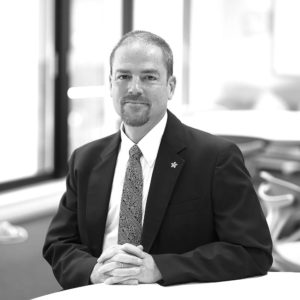 Ted O’Neill is a professor at Gakushuin University, Tokyo. He recently held the position of Associate Professor of English in the College of Liberal Arts and Sciences at Tokyo Medical and Dental University. Previously, he taught in the English Language Program at J. F. Oberlin University where he also served as Coordinator for the Foundation English Program. Ted was co-editor of The Language Teacher for the Japan Association for Language Teaching (JALT) and currently serves on the JALT National Board of Directors as Director of Public Relations. He received an MA in ESL and Bilingual Education from the University of Massachusetts/Boston, USA. Ted joined the Apple Distinguished Educator Program in 2011 and completed a postgraduate Certificate of Educational Technology and Information Literacy through the Graduate School of Education at the State University of New York in 2014.
Ted O’Neill is a professor at Gakushuin University, Tokyo. He recently held the position of Associate Professor of English in the College of Liberal Arts and Sciences at Tokyo Medical and Dental University. Previously, he taught in the English Language Program at J. F. Oberlin University where he also served as Coordinator for the Foundation English Program. Ted was co-editor of The Language Teacher for the Japan Association for Language Teaching (JALT) and currently serves on the JALT National Board of Directors as Director of Public Relations. He received an MA in ESL and Bilingual Education from the University of Massachusetts/Boston, USA. Ted joined the Apple Distinguished Educator Program in 2011 and completed a postgraduate Certificate of Educational Technology and Information Literacy through the Graduate School of Education at the State University of New York in 2014.
Steve Cornwell
Osaka Jogakuin University, Japan
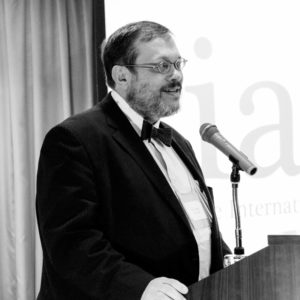 Steve Cornwell is Professor of English and Interdisciplinary Studies at Osaka Jogakuin College, and also teaches on the MA TESOL program for the New School at NYU. He holds an MFA from Virginia Tech, and an Ed.D. from Temple University.
Steve Cornwell is Professor of English and Interdisciplinary Studies at Osaka Jogakuin College, and also teaches on the MA TESOL program for the New School at NYU. He holds an MFA from Virginia Tech, and an Ed.D. from Temple University.
Professor Cornwell is Director of Program for the Japan Association of Language Teachers (JALT), and a member of their National Board of Directors. He is also a former editor of the JALT journal. An American who has made Osaka his home, Professor Cornwell first became involved with IAFOR as a featured speaker at the first ACE conference in 2009, and has gradually become more involved in the organization. In his capacity as Local Conference Chair, he now assists in the logistical and administrative side of every event. He advises extensively on academic matters too, with particular responsibility for overseeing and developing the programmes of the ACLL/ACTC conference in Japan, and the ECLL/ECTC event in the UK.
Conference Videos
Kay Irie
Keynote Presentation: “Motivation in Language Learning”
Michael Griffin
Featured Presentation: “How We Talk about Teaching”
Eric Hawkinson, Erin Noxon & Martin Stack
Featured Presentation: “TEDx and Augmented Reality – Informal Learning and International Exchange with Mobile Technology”
